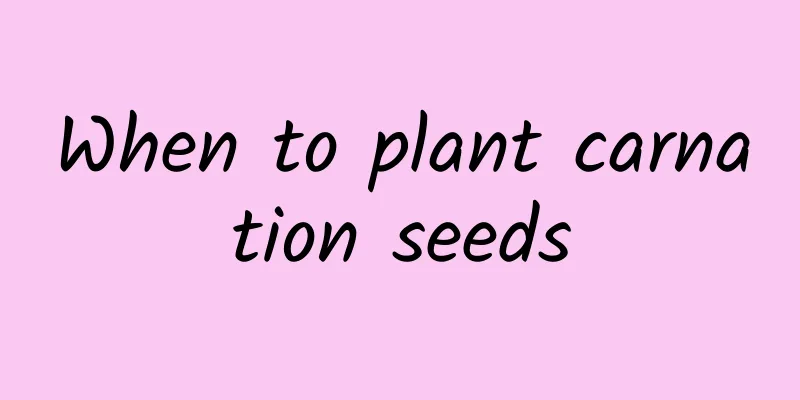What is the best fertilizer for blueberry fertilization? If you use the right fertilizer, blueberries will grow faster.

|
Because the growing conditions of blueberries are relatively strict and they are sensitive to fertilizers, we must choose some more rigorous and scientific methods when fertilizing blueberries. For example, we should choose different fertilizers according to the different needs of the growth period, use nitrogen fertilizer as the main fertilizer before germination, and use nitrogen, phosphorus and potassium fertilizers as the main fertilizers after fruit setting, combined with some ordinary compound fertilizers, and use phosphorus and potassium fertilizers as the main fertilizer before harvesting. Fertilizer for blueberries1. Organic fertilizer Compared with chemical fertilizers, blueberries are more suitable for organic fertilizers that are complete in nutrition, rich in microorganisms, and low in salt, such as fermented chicken manure, pig manure, cow manure, various cake fertilizers, bone meal and other organic fertilizers. This type of fertilizer is milder and has a longer lasting effect. 2. Nitrogen fertilizer Nitrogen fertilizer needs to be applied during the growth period of blueberries, but in the later stages of growth, as the amount of nitrogen fertilizer applied increases, the yield tends to decrease, the fruit becomes smaller, the ripening time is prolonged, and the overwintering shoots are severe, so nitrogen fertilizer should be applied reasonably. 3. Phosphate fertilizer When blueberries are planted in the Changbai Mountain area, the fields are often deficient in phosphorus. Increasing the application of phosphorus fertilizers can significantly increase yields. However, if the soil itself contains a lot of phosphorus, increasing the application of phosphorus fertilizers will reduce yields and delay the ripening of the fruit. 4. Potash fertilizer If you want blueberries to mature earlier and improve their quality and yield, you need to apply an appropriate amount of potassium fertilizer, but the amount of fertilizer must be controlled. Excessive application will affect the quality of the fruit, cause serious damage over the winter, and lead to magnesium deficiency. Key points for blueberry fertilizationBlueberry is a crop that is sensitive to chlorine. If the chloride ion concentration in the soil is too high, it will cause chloride ion poisoning and death of fruit trees. Therefore, when fertilizing blueberry trees, be sure to avoid using fertilizers such as ammonium chloride and potassium chloride, and try to use potassium sulfate type compound fertilizers. In addition, blueberries do not like nitrate nitrogen. The use of nitrate nitrogen can easily cause the death of blueberry trees. Therefore, when planting blueberries, you should avoid using fertilizers such as ammonium nitrate, potassium nitrate, and calcium ammonium nitrate. You can use organic fertilizers and balanced potassium sulfate compound fertilizers to promote better quality and yield of blueberries. |
Recommend
Do you need to chew passion fruit seeds before eating?
1. Is it necessary? The seeds of passion fruit ca...
What diseases can allicin prevent and treat?
Ethylalicin is a moderately toxic fungicide . The...
What to do if the leaves of Epiphyllum become soft and droopy
1. Treating Pests Cause: If the leaves of Epiphyl...
How to prepare soil for succulent cultivation (Simple preparation techniques for succulent cultivation nutrient soil)
When growing succulents, many flower lovers alway...
What kind of flowerpot looks good for lucky bamboo? Can I put three in one flowerpot?
1. Flower Pot When choosing a flowerpot for growi...
Where is Gastrodia suitable for growing?
Where does Gastrodia elata grow? Gastrodia elata ...
What medicinal herbs are good for mountain planting? What medicinal herbs are suitable for mountain planting and can make money?
Generally speaking, the climatic conditions in mo...
How to grow durian seeds in small pots
1. Seed treatment After cleaning the durian seeds...
The Value of Bauhinia
The ornamental value of Bauhinia Although the flo...
Which month is suitable for planting corn?
Corn is not only a key source of food and feed in...
Light/soil/temperature/water/fertilization method of Torch Flower
1. Lighting Torch flower needs plenty of sunlight...
The efficacy and function of Eucommia ulmoides
The efficacy and function of Eucommia ulmoides Eu...
Are the flowers of the saffron plant poisonous? Can the nectar be eaten?
1. Is it toxic? Its flowers are very bright and f...
How to change the soil and pot of Anthurium
Effects and requirements of changing soil and pot...
How to grow strawberries and what kind of soil is needed
1. How to plant 1. Time: Choose the desired varie...









